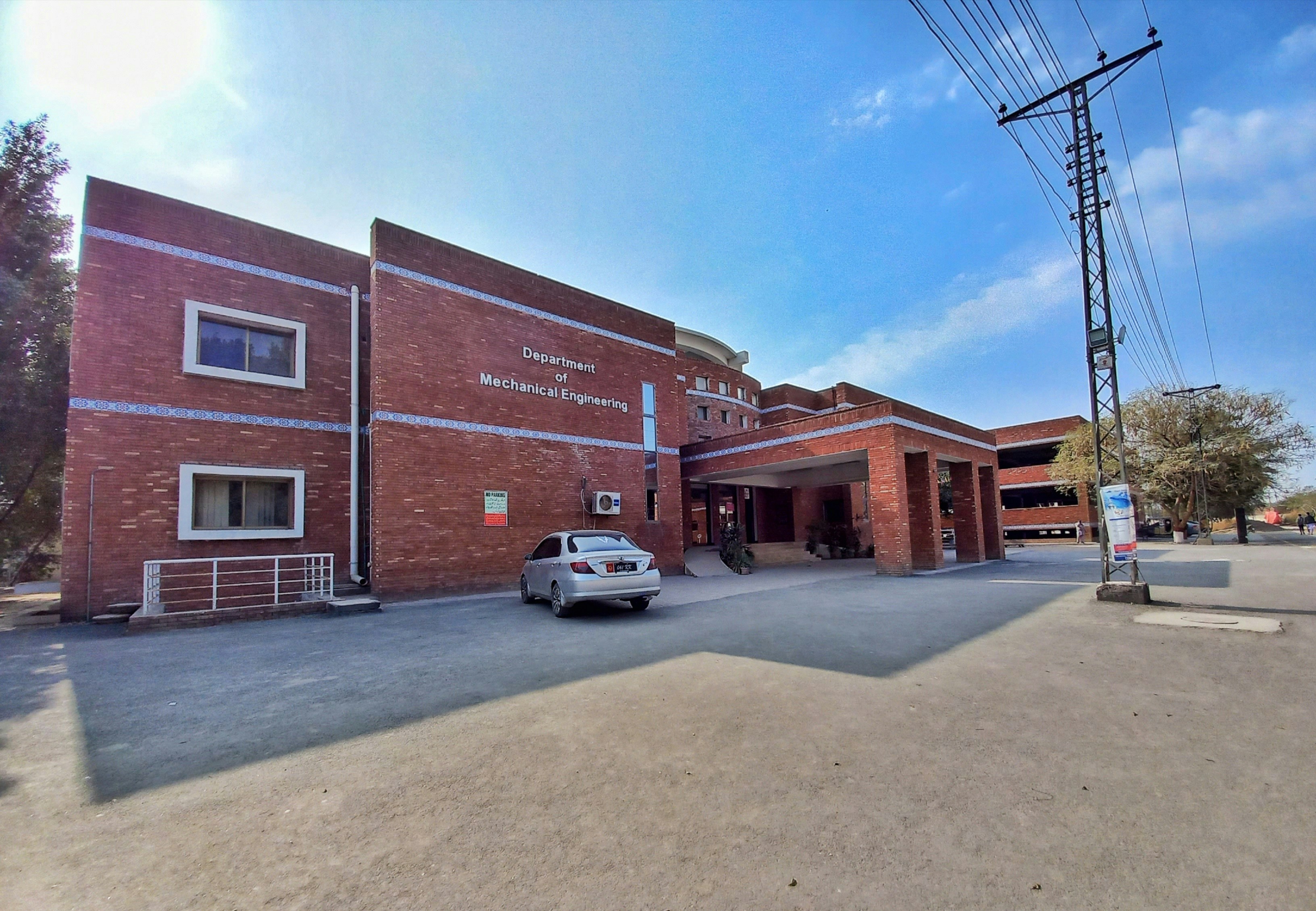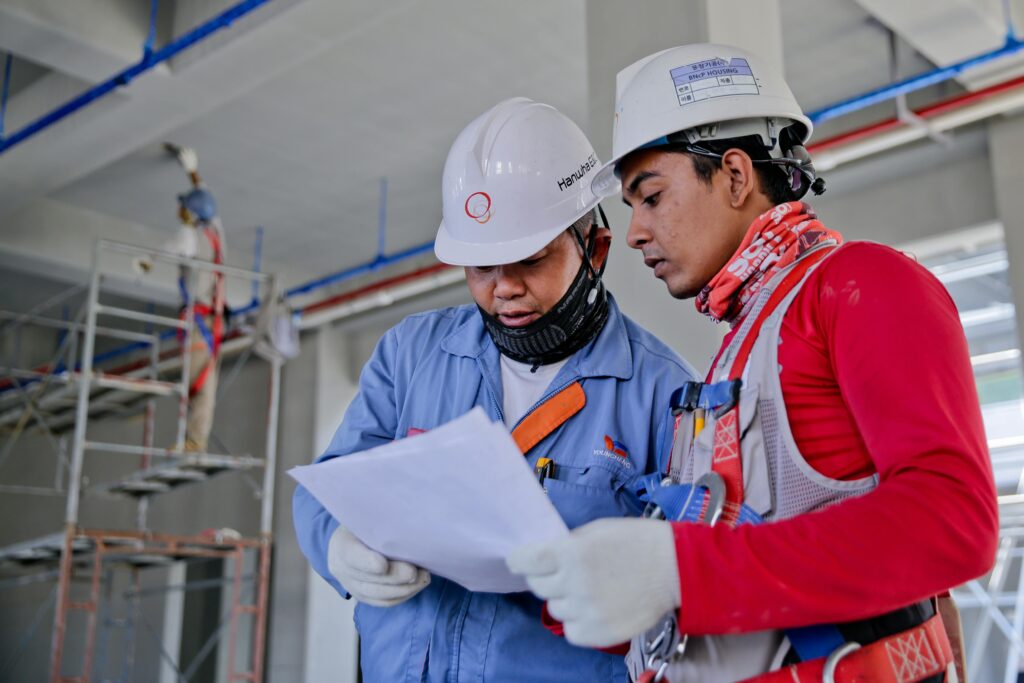Introduction to Industrial Engineering and Its Importance
Industrial engineering is a multidisciplinary field that focuses on optimizing complex processes, systems, and organizations. By applying principles of engineering, management science, and social sciences, industrial engineers seek to enhance efficiency, productivity, and quality within various sectors. This discipline plays a pivotal role in designing and improving processes that not only maximize resources but also ensure that systems function seamlessly. As the global economy evolves, the demand for skilled industrial engineers continues to rise across a multitude of industries, including manufacturing, healthcare, logistics, and information technology.
The relevance of industrial engineering can be observed in its ability to integrate human, machine, and material resources effectively. This integration is essential in today’s fast-paced, technology-driven environment, where organizations strive to remain competitive. Industrial engineers employ techniques such as statistical analysis, systems simulation, and optimization methodologies to tackle challenges ranging from production inefficiencies to supply chain disruptions. Moreover, their expertise contributes significantly to improving safety standards and reducing waste, leading to more sustainable practices embraced by organizations worldwide.
<pas a="" ability="" adapting="" address="" advancements,="" an="" analyze="" and="" arab="" are="" as="" assets="" becoming="" challenges="" competition,="" complexity,="" consequently,="" critical="" cultivate="" current="" curricula="" diverse="" domains.Current Trends in Industrial Engineering Education
The landscape of industrial engineering education is undergoing significant transformation in response to the evolving needs of the industry. One of the most noteworthy trends is the shift towards interdisciplinary learning. This approach encourages students to acquire knowledge and skills across various disciplines, integrating concepts from fields such as computer science, management, and environmental science. By embracing an interdisciplinary framework, educational institutions are preparing future industrial engineers to tackle complex challenges that require a broader understanding of how different fields interact in real-world applications.
Moreover, the incorporation of digital tools is becoming increasingly essential in industrial engineering curricula. As industries adopt advanced technologies such as artificial intelligence (AI), machine learning, and big data analytics, educational programs are adapting to include these tools in their coursework. Students are being taught to utilize software and applications that enhance productivity and efficiency. For instance, many programs now offer training on using simulation and optimization software, empowering students to apply theoretical concepts to practical scenarios. This integration of digital tools not only enriches the educational experience but also ensures that graduates are well-equipped for modern workplace environments.
Another critical trend is the focus on sustainable practices within industrial engineering education. With growing awareness of environmental issues, universities are emphasizing the importance of sustainability in engineering practices. Programs are increasingly incorporating topics related to sustainable manufacturing, resource management, and energy efficiency. This focus aligns with the global shift towards more responsible and eco-friendly practices within industries and is integral in shaping future engineers who can contribute to a more sustainable world. By prioritizing sustainability, educational institutions are ensuring that their graduates not only excel in their technical skills but also understand the broader implications of their work on society and the planet.
Challenges Facing Arab Universities in Industrial Engineering Programs
The landscape of industrial engineering education within Arab universities is currently facing several significant challenges that hinder its effectiveness in meeting the evolving needs of the industry. One of the primary obstacles is the prevalence of outdated curricula. Many academic programs have not undergone substantial revision to integrate contemporary industrial practices or technologies. As a result, students may graduate with skills that are not aligned with industry requirements, leading to difficulties in securing employment and effectively contributing to the workforce.
Moreover, limited resources pose another critical challenge for institutions. Many Arab universities struggle with inadequate funding, restricting their ability to invest in modern facilities, research opportunities, and instructional materials. This lack of resources not only constrains the potential for academic development but also hinders students’ hands-on learning experiences, which are essential in the field of industrial engineering.
Additionally, a considerable gap exists between the needs of industries and the academic offerings of universities. Employers often express concerns that graduates lack practical experience and essential skills relevant to current market demands. This disconnect ultimately undermines the employability of graduates and perpetuates a cycle of misalignment between educational outcomes and industry expectations.
To address these challenges, arab universities must embark on a comprehensive review of their industrial engineering programs. Collaborating closely with industry leaders, integrating innovative teaching methods, and securing adequate funding are vital steps toward enhancing the quality of education. By bridging the gap between academic offerings and practical industry needs, institutions can better prepare their graduates for the complexities of modern industrial environments.
Innovative Curriculum Development in Response to Industry Needs
In today’s dynamic industrial landscape, Arab universities are increasingly recognizing the need to innovate their curricula to better equip students for the challenges ahead. This evolution in higher education is marked by strategic collaborations with industry stakeholders, which have become a cornerstone in curriculum development for industrial engineering programs. By actively engaging with businesses and industry leaders, universities can ensure that the skills taught align closely with market demands and technological advancements.
One of the key strategies employed is the introduction of practical training and internship opportunities for students. These experiential learning components not only provide students with firsthand experience in real-world industrial environments but also foster essential skills such as problem-solving and critical thinking. Internships allow students to apply theoretical knowledge in practical settings, bridging the gap between academia and industry expectations. Such hands-on experience significantly enhances employability, giving graduates a competitive advantage in the job market.
Furthermore, the integration of advanced technologies, including artificial intelligence (AI) and data analytics, is transforming educational approaches within industrial engineering programs. By incorporating these cutting-edge tools into the curriculum, universities are preparing students to analyze and interpret data effectively, a skill crucial in modern industrial contexts. Courses focused on AI applications, predictive analytics, and systems optimization are becoming increasingly prevalent, providing students with the knowledge to manage complex industrial systems and processes.
In conclusion, Arab universities are stepping up to meet the evolving needs of industrial engineers by innovatively revamping their curricula. Through collaboration with industry, practical training, and the integration of advanced technologies, these institutions are ensuring that their graduates are not only knowledgeable but also highly skilled and ready to succeed in an ever-changing industrial landscape.
Case Studies of Successful Adaptation in Arab Universities
In recent years, several Arab universities have made significant strides in adapting their industrial engineering programs to better meet the evolving demands of the industrial sector. These initiatives encompass curriculum updates, industry partnerships, and innovative pedagogical approaches aimed at enhancing student employability and addressing local industry needs.
One noteworthy example is the American University of Sharjah (AUS) in the United Arab Emirates, which revamped its industrial engineering curriculum to include practical, hands-on experiences. Collaborating closely with local industries, AUS introduced capstone projects where students work directly with companies to solve real-world engineering challenges. This approach not only enriches the academic experience but also ensures graduates are well-equipped with the skills and knowledge required in the competitive job market.
Another successful case can be observed at King Abdulaziz University (KAU) in Saudi Arabia. KAU adopted a multi-faceted approach by establishing a dedicated Industrial Engineering Innovation Center. This center serves as a hub for research and development, facilitating collaboration between faculty members and industry leaders. The incorporation of cutting-edge technology, such as simulation software and data analytics tools, into the curriculum allows students to gain practical insights that are directly applicable to their future careers in industrial engineering.
Moreover, the University of Jordan has taken proactive steps by integrating internship programs within its industrial engineering department. By fostering partnerships with various local and regional industries, the university has been able to offer students essential work experience before graduation. This engagement not only benefits students by enhancing their employability but also allows industries to play a crucial role in shaping the educational framework, ensuring that programs remain relevant and aligned with market needs.
Through these case studies, it is evident that Arab universities are actively responding to the requirements of industrial engineers, demonstrating a commitment to bridging the gap between education and industry. By implementing these adaptations, institutions are not only preparing their students for the workforce but also contributing to the growth and sustainability of local economies.
The Role of Digital Transformation in Enhancing Education
Digital transformation is fundamentally reshaping industrial engineering education in Arab universities, facilitating an innovative learning environment that meets the demands of the modern workforce. As technology continues to evolve, educational institutions are harnessing its power to enhance the quality and accessibility of their programs. One of the most significant advancements is the implementation of online learning platforms, which allow students to access course materials and lectures from anywhere at any time. This flexibility caters to a diverse student body and accommodates those who may have work or family obligations, ensuring that higher education is more inclusive.
Furthermore, real-time collaboration tools are becoming integral to the educational landscape. These platforms enable students to engage in group projects and discussions regardless of their physical location. This collaborative approach not only mirrors the interconnected nature of today’s industrial environments but also fosters essential skills such as teamwork and communication. For instance, tools like video conferencing and project management software are frequently used to facilitate effective learning experiences, encouraging students to engage actively and interactively in their education.
Moreover, virtual simulations are revolutionizing the practical aspect of industrial engineering education. By providing students with realistic scenarios in a controlled environment, these simulations offer hands-on experience without the risks associated with real-world experimentation. This technology allows students to apply theoretical concepts to practice, ensuring that they are better prepared for the challenges they will face in their careers. As a result, Arab universities are aligning their educational offerings with industry standards and expectations, preparing their graduates to thrive in a competitive job market.
Industry Collaboration and Partnerships: A Key to Success
In the rapidly evolving landscape of higher education, the importance of collaboration between Arab universities and industry players cannot be overstated. These partnerships are essential for aligning academic programs with the practical requirements of the job market, especially in fields such as industrial engineering. By fostering cooperation with various sectors, including manufacturing, technology, and service industries, universities can ensure that their curriculum not only reflects current industry trends but also anticipates future developments.
One of the primary goals of such collaborations is to create a feedback loop between educational institutions and industry stakeholders. Through partnerships, companies can provide valuable insights into the specific skills and competencies they seek in graduates. This information can be instrumental for universities as they revise their programs to better prepare students for the workforce. For instance, integrating real-world projects into the curriculum, joint research initiatives, and internship opportunities can significantly enhance a student’s learning experience and employability.
Moreover, the establishment of advisory boards that include industry representatives allows universities to maintain ongoing dialogue regarding the changing needs of the labor market. These boards can help shape program outcomes, ensuring that graduates are equipped with the competencies necessary for success in their respective fields. This collaboration not only benefits students and educational institutions but also supports industries in securing a workforce that is well-prepared to meet their challenges.
As Arab universities continue to adapt to the changing educational landscape, their ability to cultivate robust partnerships with industry will be pivotal. By committing to this collaborative approach, universities can bridge the gap between education and industry, enhancing the relevance of their offerings and ultimately contributing to the sustainable development of the regional economy.
Student Engagement and Skill Development Initiatives
In the rapidly evolving landscape of industrial engineering, the necessity for comprehensive skill development and enhanced student engagement is paramount. Arab universities increasingly recognize this requirement, prompting the launch of various initiatives tailored to optimize the educational experience for aspiring industrial engineers. These initiatives extend beyond traditional lecture-based learning, embedding a more hands-on and interactive approach essential for equipping students with the necessary competencies to excel in the workforce.
One prominent initiative is the implementation of mentorship programs, which connect students with experienced professionals in the field of industrial engineering. These programs encourage knowledge sharing, fostering a collaborative learning environment where students can gain insights into real-world challenges and best practices. Mentorship not only aids in technical skill development but also enhances soft skills such as communication and problem-solving, which are indispensable in the industrial engineering sector.
Additionally, universities are organizing workshops that focus on specific engineering tools, software, and methodologies relevant to today’s industrial landscape. These workshops not only enhance technical prowess but also promote critical thinking and creativity, essential attributes for future engineers. By engaging with hands-on projects and simulations, students can apply theoretical knowledge to practical scenarios, thereby reinforcing their learning experience.
Extracurricular activities also play a crucial role in enhancing student engagement. Student-led societies and clubs focused on industrial engineering provide an avenue for members to collaborate, innovate, and engage in competitions that simulate industry settings. Participation in such activities cultivates teamwork and leadership skills, preparing students for the realities of working in diverse teams in their professional lives.
Overall, these initiatives reflect a profound commitment from Arab universities to not only meet the educational needs of their students but also to prepare them comprehensively for future roles within the industrial engineering field.
Future Outlook: Trends to Watch in Industrial Engineering Education
The landscape of industrial engineering education in Arab universities is undergoing significant transformation, driven by various emerging trends. As the industry evolves, educators are tasked with equipping graduates with relevant skills and knowledge that align with both current and future demands. One pivotal trend shaping this educational shift is the increasing emphasis on sustainability. With growing awareness around environmental issues, universities are integrating sustainable engineering practices into their curricula. This shift aims to prepare engineers who are not only proficient in traditional methodologies but also adept at implementing eco-friendly solutions in their designs and processes.
Globalization of education is another vital trend worth noting. As Arab universities strive to enhance their international standing, many institutions are partnering with global educational entities, enabling knowledge exchange and collaborative research initiatives. This globalization trend fosters a diverse learning environment where students gain insights from various cultural perspectives and practices in industrial engineering, thus broadening their skill sets and competitiveness in a global job market.
Moreover, the importance of ethical considerations in engineering practices is gaining traction. Educational institutions are increasingly recognizing the necessity of instilling ethical principles in their industrial engineering programs. As engineers often face complex scenarios that require sound ethical judgment, integrating this aspect into the curriculum prepares future professionals to navigate real-world challenges responsibly and effectively.
In conclusion, the future outlook for industrial engineering education in Arab universities appears promising. By focusing on sustainability, fostering global partnerships, and emphasizing ethical practices, educational institutions are taking significant strides to ensure their graduates are well-prepared to meet the dynamic needs of the industry. As these trends continue to evolve, they will undoubtedly influence the quality and relevance of industrial engineering programs, suggesting a bright horizon for aspiring engineers.



